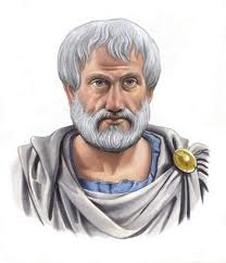 ARISTOTLE MAY HAVE GOT IT RIGHT. His emphasis on logic allowed him to view slaves and slavery, men and property owners, more rationally and compassionately than any other leader. This single topic of his time shows us a broad yet thorough picture of how true reasoning works and works fairly. The concept and practice of enslaving other peoples has existed for centuries. In most ancient societies, slavery was not only custom but also necessity. Without this foundation of labor, the very structure of early societies could fail. In ancient Greece, Aristotle argued that slavery was a necessity, and it could be either just or unjust in practice; yet he also acknowledged that rational slaves could have souls (which begs another question of course) and deserved to be freemen. This seeming discrepancy points to his growing awareness of slavery’s issues and perhaps his perspective of man. In Politics, Aristotle himself questions whether a man can be destined to be a slave at birth: But is there any one thus intended by nature to be a slave . . . or rather is not all slavery a violation of nature? (1.1254a). I appreciate this last question the most. Aristotle is not a man set in his ways nor is he firmly cemented in popular thought. Aristotle felt that a man’s natural tendencies, even inherited ones, could lead him to be ruled, one who naturally was subjected. However, he did see an exception to this “natural” slavery; essentially, he qualified his own proposition because subjection might have been true for some, but not for an entire peoples and not for those who didn’t choose it. Aristotle conceded, for example, that it was unjust to enslave through war those who were not slaves by nature (1.1255a). He even termed the conquering of others for this purpose a “great evil” (7.1333b) because conquered peoples were being forced into something they weren’t born to. Aristotle did see the injustice of this single form of slavery. Could it be true? If slaves had rational minds, then they would not be natural slaves and thus, using Aristotle’s reasoning, should not be enslaved. Yet Aristotle also insisted that slavery was a natural, expected, and just foundation for a living society, for some should rule and others [should] be ruled (1.1254a). Typically, this same community required slaves, ministers of action, to function. Since they were his property, his possession, slaves were the means by which a master secured his livelihood (1.1253b). Aristotle saw slavery as just when the rule of master over slave was beneficial to both parties. He even allowed that they could share in friendship (1.1255b). Here, then, is where Aristotle concedes again that a slave might not truly be a slave by nature. They could have souls like rational men, unlike beasts of burden, since they were capable of friendship and considered part of the master (Ibid). The discrepancy lies in that they had to be rational in order to obey their masters. But if slaves had rational minds, then they would not be natural slaves and thus, using Aristotle’s reasoning, should not be enslaved. Though Aristotle clearly advocated slavery in his time, he acknowledged his opponents’ arguments, too. If slavery was a violation of nature as others had proposed, then the distinction between slave and freeman exist[ed] by law only, and not by nature and was also declared unjust (1.1253b). Since Aristotle allowed for such considerations, maybe by his generalization there couldn’t be one applicable definition for all slaves nor could there be an absolutist view of the issue. Aristotle could see that some slaves, a portion, were rational men, but he couldn’t apply that reasoning to all as a group. He could not allow for all slaves to be men, for that would destroy the infrastructure of his ideal community, the polis. Comments are closed.
|

 RSS Feed
RSS Feed